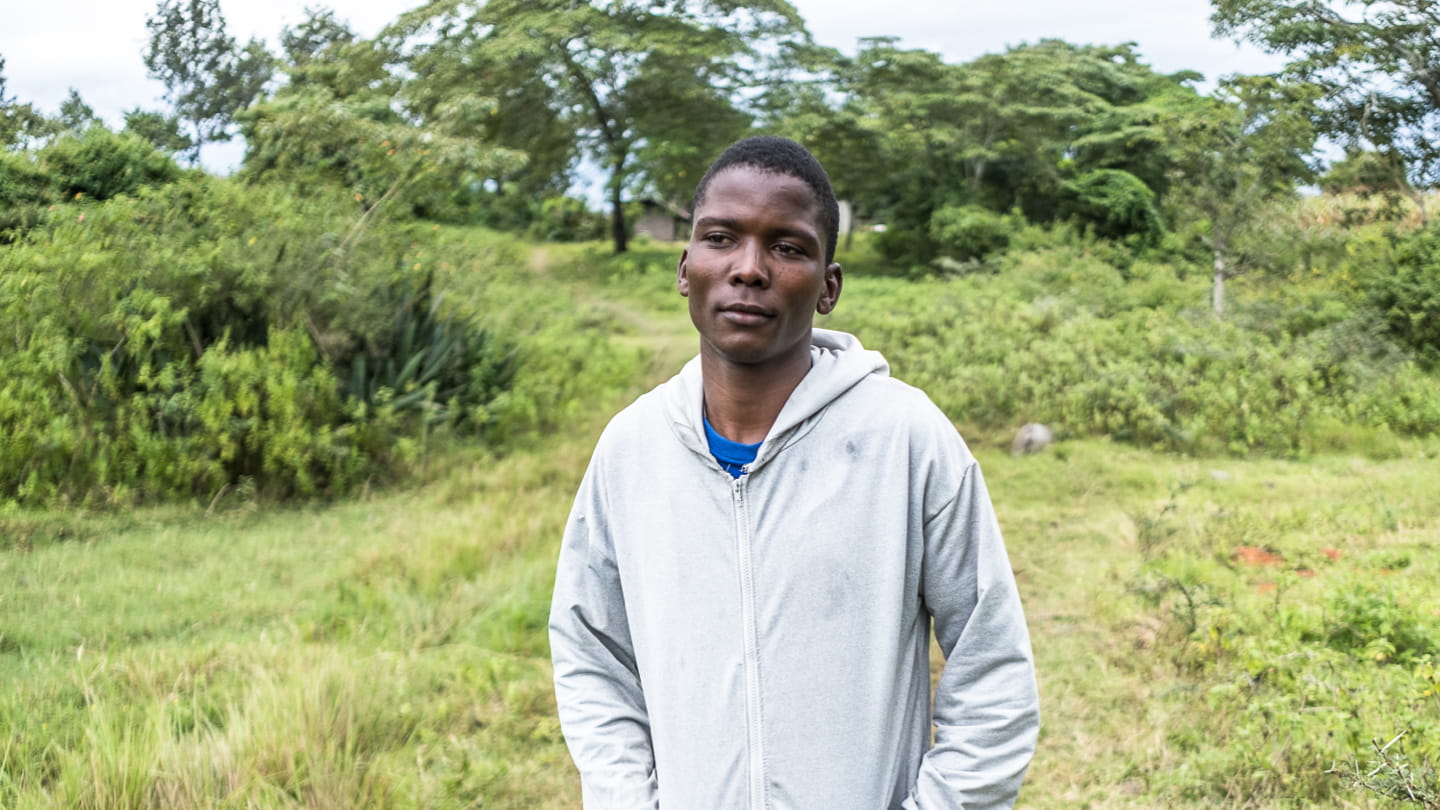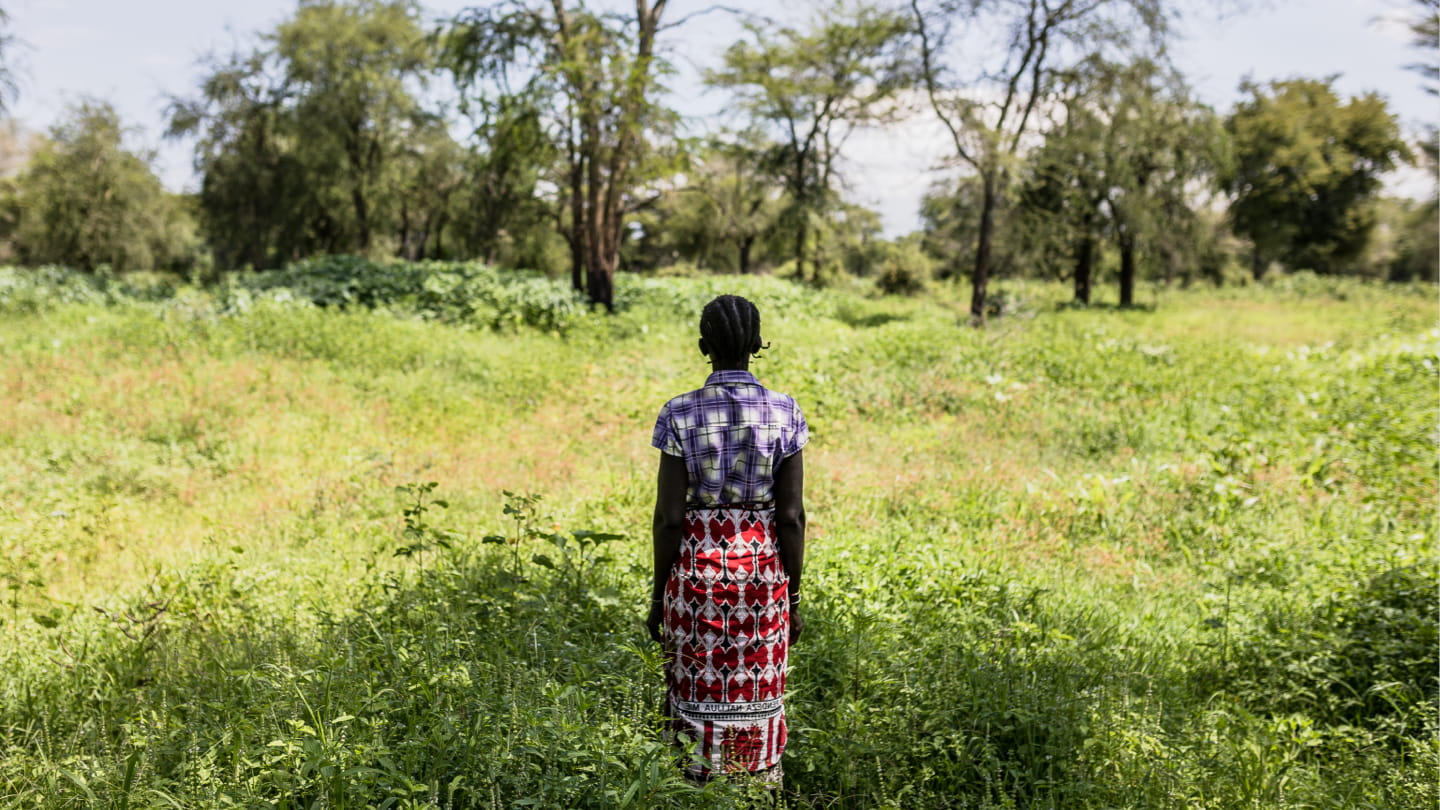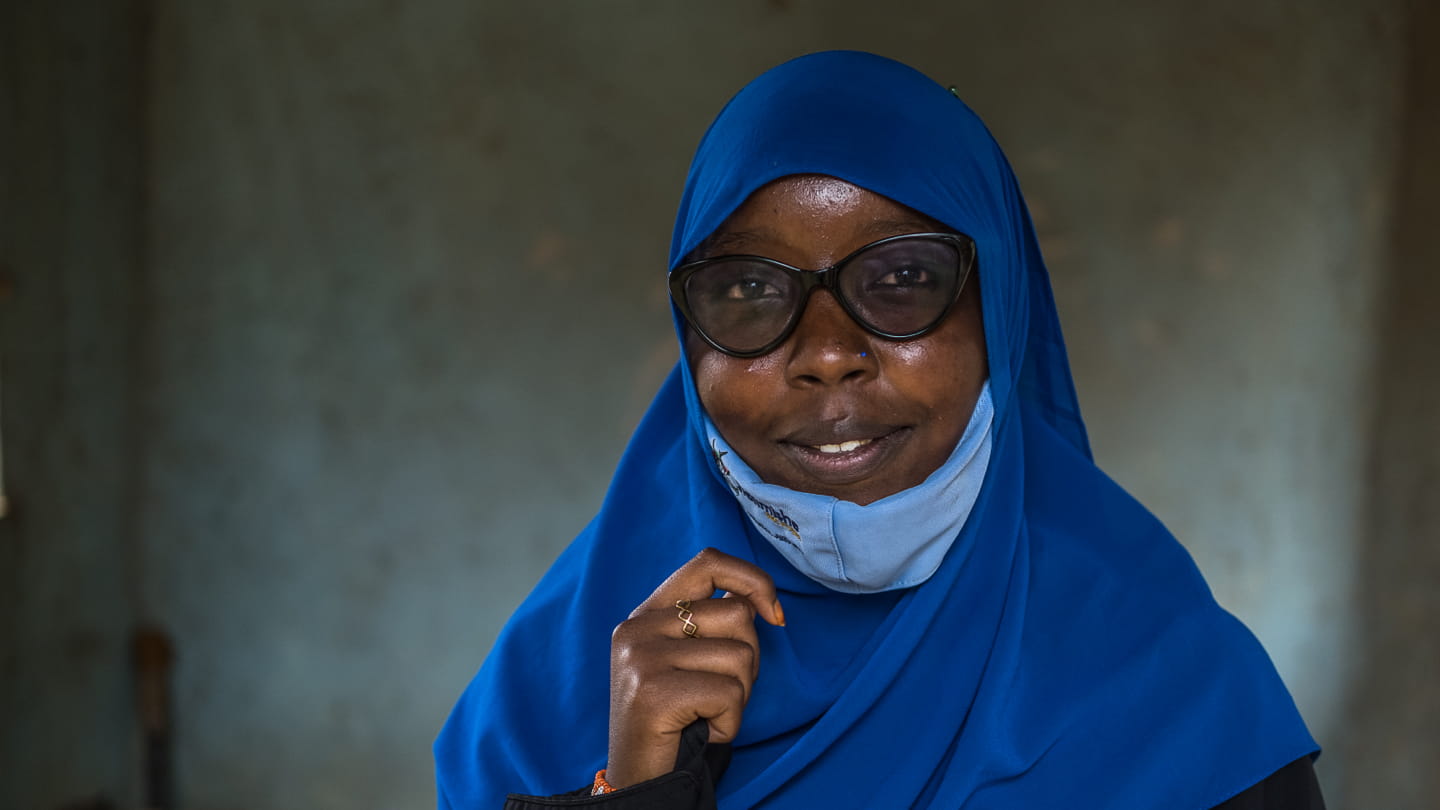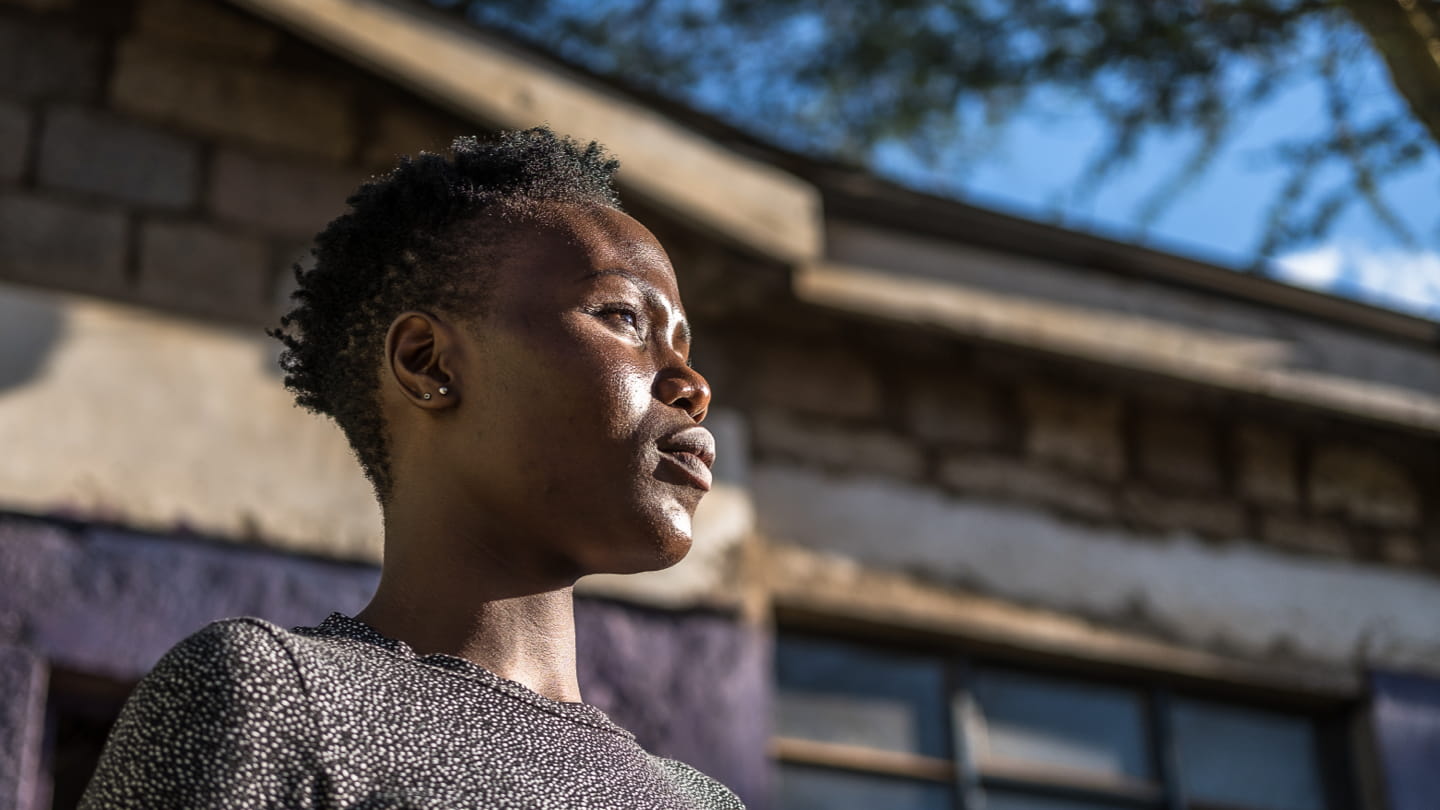
Empowered Youth for a Better Future
30 Years of Deutsche Stiftung Weltbevölkerung (DSW)
in photos
Photographs by Brian Otieno, unless otherwise stated
What have we achieved in 30 years?
For 30 years, DSW has been conducting sexuality education in east Africa and advocating at the political level in Germany and the EU to ensure that sustainable population development is on the international political agenda.
The human right to family planning is at the center of our work. In particular, we support young people in east Africa in making self-determined decisions about their sexuality and contraception. After all, as the adults and parents of tomorrow, they are the key to sustainable and viable development.
If they can make self-determined decisions about their lives and stand up for their rights, a strong youth actively contributes to a better future.
On December 12, 1991, Erhard Schreiber and Dirk Roßmann, two entrepreneurs from Hannover, founded Deutsche Stiftung Weltbevölkerung (DSW) to implement the human right to family planning and thus contribute to sustainable population development.
Since then, DSW has supported young people in making self-determined decisions about their sexuality and contraception. At the same time, DSW is involved in relevant political decision-making processes at national and international level.
"The ICPD Program of Action adopted in Cairo represented a paradigm shift and has guided DSW's work ever since. The Cairo Program defined for us how we view sexual and reproductive health and rights (SRHR) and population dynamics: with the right of every individual at the center." Renate Bähr, Executive Director 2008–2020
Since 1999, DSW has focused on peer education with its "Youth-to-Youth Initiative" (Y2Y): education of youth by youth. Y2Y led to the development of the "Strategic Approach to Youth Development" with 295 youth clubs and 40 youth development centers at present, reaching countless young people in east Africa.
Youth club activities include sexual and reproductive health and rights (SRHR) education, political participation, and income-generating activities. A special feature is that the young people are not only involved in the activities, but also take the lead in all phases – planning, implementation and evaluation.
The first country office in the project region of east Africa opened in Ethiopia in 1999. From then on DSW was even closer to the youth and the projects were able to be accompanied and implemented by local forces.
This was followed by the opening of further country offices in Tanzania, Uganda and Kenya. The country office in Uganda has been an independent organisation since 2017, operating under the name Action 4 Health Uganda.
At the suggestion of DSW, TV presenter Alfred Biolek (†), was the first German to be appointed UNFPA Goodwill Ambassador for young people in Africa and their protection against infection with HIV in 2000.
This is followed by many trips to Africa and Asia and the establishment of his own foundation as a trust under the umbrella of DSW.
On the initiative of DSW, members of the German Bundestag (Parliament) establish the All-Party-Parliamentary Group (APPG) on Population and Development in 2003 as an informal cross-party and cross-committee body.
The aim of the APPG, both then and now, is to promote sustainable development cooperation and secure funding for it. The main focus is on global health (SDG 3) and gender equality (SDG 5) of the 2030 Agenda (see 2015 highlight "The 2030 Agenda is adopted"). DSW acts as the secretariat of the advisory board and organises the meetings.
Since 2009, DSW has been one of the first international development organisations to dedicate itself to sexuality education for ten to fourteen year olds. The Young Adolescents Project is an innovative project approach that focuses equally on different project target groups such as primary school students, teachers, parents, health workers and decision-makers in the communities.
The awareness project started in ten elementary schools in Uganda. In 2013, it was expanded to ten additional elementary schools in the coastal regions of Kenya.
"With the opening of a small office in Marienstraße, not far from the Bundestag (Parliament) on January 2, 2010, we had the chance to present our political work – and thus the work of the Foundation as a whole – to a broader audience of politicians, media and civil society." – Caroline Kent, former head of the DSW office in Berlin
For its 25th anniversary, DSW got a new look. With bold colors and a modern logo, it presents itself as active and strong and now also visually represents what it is committed to: activating the potential of young people in developing countries and providing them with new perspectives.
The new motto says it all: Youth Can!
In 2018, the TeamUp foundation initiative was launched by four partners: the German Federal Ministry for Economic Cooperation and Development (BMZ), Hanns R. Neumann Stiftung, Siemens Stiftung and DSW.
With a holistic approach that includes economic, social, health and educational components, TeamUp improves the prospects and living conditions of young people in rural Uganda.
Each participating organisation and its local partner contribute with their respective core competencies: DSW in the area of Sexual and Reproductive Health and Rights (SRHR) and advocacy, Siemens Stiftung in the area of Water, Sanitation and Hygiene (WASH), and Hanns R. Neumann Stiftung in the area of agribusiness. The Federal Ministry for Economic Cooperation and Development is supporting the program financially.
DSW's pledge at the Nairobi Summit: "DSW is committed to promoting demand for and access to health information, services, and supplies, as well as youth economic empowerment.
DSW will reach a total of 10 million people in east Africa and Europe by 2025 with evidence-based information on sexual and reproductive health and rights. (...)"
DSW turns 30! But despite numerous successes, much remains to be done, because: one in two pregnancies in low- and middle-income countries is still unintended.
To ensure that the work of DSW continues to be targeted where self-determined family planning is still not possible, we have revised our strategy for our anniversary. With a contemporary and forward-looking vision, we are relentlessly continuing our work for an empowered youth for a better future!

Training of youth activists
In our projects, we train young people to become youth activists so that they can draw attention to their needs and demands in their communities and in local politics.
This enables them to advocate for more youth-friendly services and better implementation of existing youth protection measures, and to convince decision-makers.
"I remember when I was cut, I bled for almost 2 weeks. I was 9 years old. After I was cut, a man almost the age of my father came to marry me. I escaped.
These days I advocate for FGM through my music which I believe has reached a lot of people. I get invited to schools, churches, women's groups, community meetings to tell people the dangers of FGM.
Through my music, I am hoping to reach out to many women and girls and even the men, to educate them and make them aware that FGM is evil and should be stopped now."

Bringing sexual health and family planning to the fore
While African youth activists raise issues such as sexual health and family planning at the community level, we at DSW also advocate for more attention to these important issues at the national and international level.
Staff in our country offices are in contact with ministries and national governments. At the same time, we are working in Berlin and Brussels to ensure that good health care and gender justice are always included in development cooperation.
"As an empowered young man, I can get the services at the facilities, but for a youth living in rural areas, they cannot get this information.
For them to get these services, they need us because we are empowered and trained on capacity building and SRHR and how to provide them with the right information; through peer education and having youth forums.
We also air out our information's, guiding and counselling through social media groups.
I feel good being a youth champion, my role is to speak on behalf of the people who can't air out their grievances and get help, and I know that something great will come out of this."

We thank you for your donations!
A large part of the trainings and activities in the youth clubs is financed by private and corporate donations.
For this valuable contribution we thank you, also on behalf of Miriam!
"We are trained and empowered by DSW. I know my rights.
I know what I want to do and I have objectives that I am working under."

We thank our partners!
We take a holistic approach. This means that we not only support young people in making self-determined decisions about their contraception and health care, but also think about their everyday lives and their economic situation.
DSW pursues this approach in numerous collaborations with other foundations and non-governmental organisations. For this successful cooperation, we thank you!
"DSW has supported us in peer learning, education on SRHR, community awareness and entrepreneurship.
After going through SRH training on family planning I got an internship and I had to be near health workers who briefed me with more information and how to talk to people about the importance of contraceptives.
I was also trained on how to talk to people living with HIV on how they could have a positive attitude."

We thank our political partners!
The political goals of our youth activists and DSW can be advanced thanks to good relations with political actors in Europe and east Africa.
We thank our political partners for their willingness to cooperate and for listening to our concerns!
"DSW Kenya is like our mother because they have encouraged and built us. They have facilitated us with many things like mentorships and training, and they are the ones who have supported us mostly, through capacity building.
We can build ourselves as youths, and we can talk in the County and national level and be listened to, they also give us advocacy tools that we can use as youths."

Only together can we reach our goal!
We can only achieve these goals together - by providing girls and boys, women and men alike, with information and enabling couples to make decisions about family planning together.
We can only implement our projects with your support - by providing funding or paving the way at the political level for issues such as sexual and reproductive rights and gender equality.











